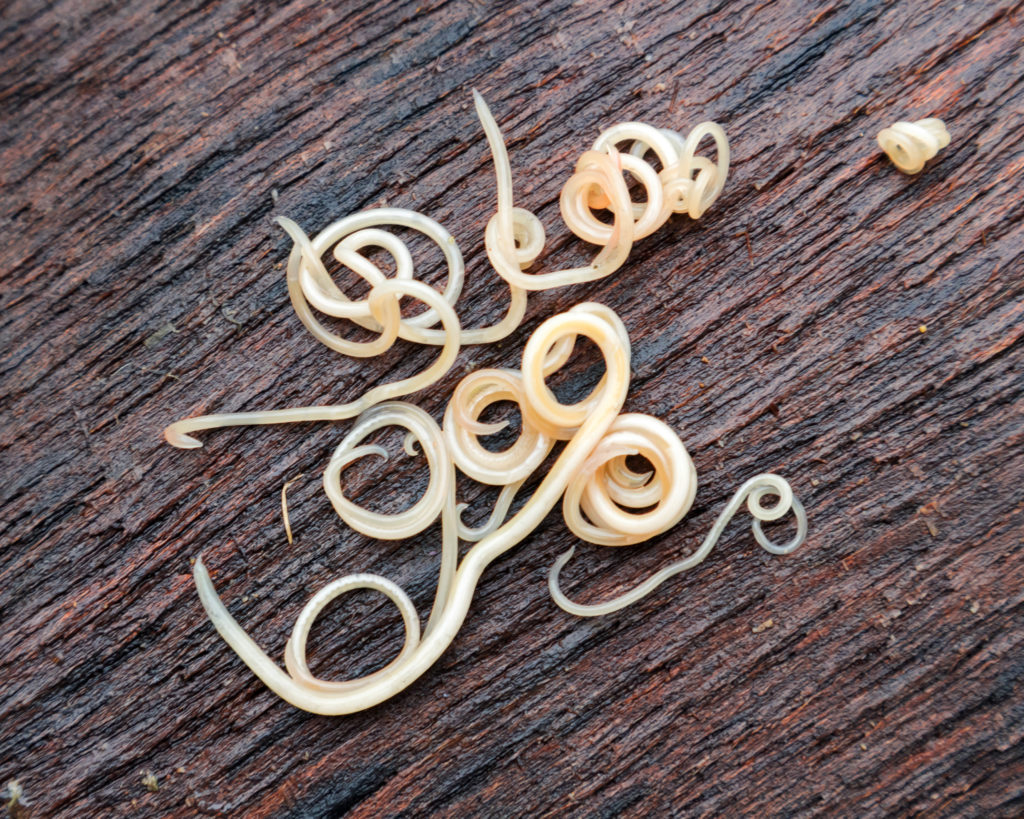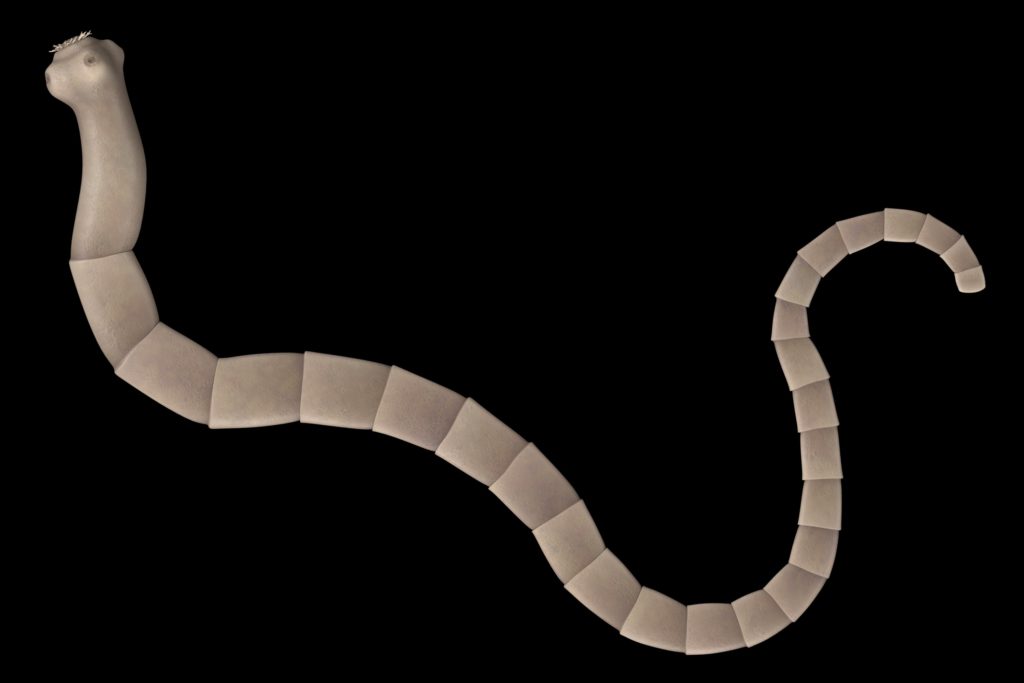Learn about the worms your chickens can get and how to treat them with Shelby DeVore.
You may have asked yourself whether your backyard chickens can get worms. Larger animals like dogs, cats and livestock can get worms, but their digestive tracts are much different than birds.
Although chickens aren’t plagued with some of the infestations that are seen in other species, they can get worms by eating insects, slugs, earthworms that are hosts to parasites.
Round worms, cecal worms, and tapeworms are nasty internal parasites can cause damage and even death if they aren’t controlled.

Roundworms
Roundworms (nematodes) are long, skinny parasites commonly found in poultry and waterfowl.
They can cause extensive damage and even organ failure. Roundworm infestations occur mainly in the digestive tract, but can be found in the windpipe, eyes and other organs.
There are two main types of roundworms that can affect your chickens: large roundworms and small roundworms.
Large Roundworms
Large roundworms (Ascaris sp.) are the most damaging of all of the internal worms.
Your chickens can pick them up directly through food or water that has been contaminated by the droppings of a bird carrying the worms, or through an intermediate host such as slugs, snails, grasshoppers, beetles, or other insects.
Large roundworms can be as big around as a pencil lead and can reach lengths of almost 5 inches. They are clearly visible with the naked eye.

Roundworms in large amounts can block the digestive tract and interfere with nutrient absorption.
Piperazine is an effective ingredient for large roundworms in poultry. Check the US Food and Drug Administration (FDA) Approved Animal Drug Products list (known as the Green Book) for currently approved medication.
Small Roundworms
Small species of roundworms (Capillaria sp., also known as capillary worms or threadworms) can affect the crop and esophagus of chickens. Small roundworms can severely affect birds and are responsible for major losses in the poultry industry each year.
Infestations of small roundworms can also affect the lower digestive tract where they can wreak havoc. They can cause severe hemorrhaging, reduced egg production, reduced fertility, inflammation and degradation of the intestinal lining.
Medications that contain levamisole are effective in treating small roundworms.
Cecal worms
Cecal worms (Heterakis gallinarum) are a type of roundworm that affects the two ceca in chickens– two blind pouches located in the chicken’s digestive tract.
Cecal worms don’t usually cause harm to chickens on their own, but they should be monitored in turkeys, or in chickens that are housed with turkeys as the worms cause histomoniasis or “blackhead” in turkeys. Birds can pick up cecal worms when they eat earthworms, so their exposure to cecal worms can be seasonal.
Cecal worms can be treated with several products so long as they include one of these active ingredients: Albendazole, Hygromycin, Ivermectin, Levamisole, Fenbendazole or Phenothianzine which work as paralytics on the worms. Once paralyzed, the chicken will naturally just poop them out.
Keep in mind that only Hygromycin (Hygromix) is approved for poultry use over the counter. You’ll need a prescription from your Vet for other products.
Tapeworms
Several types of tapeworms (cestodes) can affect chickens. Tapeworms can range in size from not visible to nearly 12 inches long and are easily identified by their long, flat bodies that are made up of multiple segments.

3-D rendering of a tapeworm that shows both head and how they are segmented.
Tapeworms shed 2-3 of these segments each day as part of their reproductive cycle and each segment can contain hundreds of tapeworm eggs. Chickens and other birds that consume these segments and the eggs hatch in their intestinal tracts, starting the life cycle over again. However, most tapeworms are host specific, so chickens will only be adversely affected by chicken tapeworms.
Tapeworms attach themselves to the lining of digestive organs with the hooked suckers located at the top end of the worm. Different species of tapeworms prefer to attach and live in specific areas of the digestive tract.
There isn’t an approved medication available for tapeworms in poultry, so your treatment efforts will be aimed at reducing the intermediate hosts availability to your birds. If you take the worms to your vet, they can identify the most likely intermediate host for you.
Shelby DeVore is a livestock expert with experience teaching high school agriculture and multiple poultry science teams. Shelby has over 20 years of experience raising poultry for show, meat and eggs. She lives on a farm in west Tennessee with her husband and two children along with too many chickens to count. You can catch up with her on her homesteading blog, Farminence.












